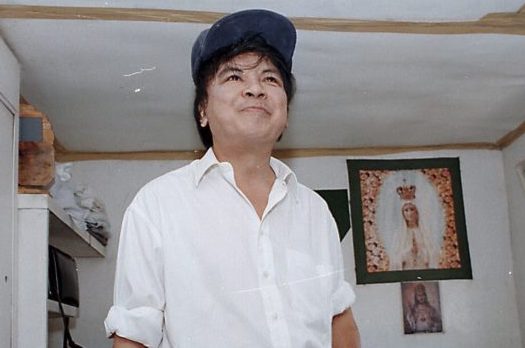MANILA, Philippines – The supposed release of former Calauan mayor Antonio Sanchez, who was convicted of rape and multiple counts of murder, has spawned debate as to who are entitled to good conduct time allowance (GCTA).
Sanchez has been meted with seven counts of reclusion perpetua for the rape and murder of Eileen Sarmenta and the slay of Alan Gomez and another two counts of reclusion perpetua for the murder of father and son Nelson and Rickson Peñalosa.
The former mayor maintained his innocence and insisted that he was already entitled for release because he was considered to have served his penalty with the deduction of his good conduct points from his prison term.
The family of the victims and various sectors argued that Sanchez should have been disqualified because he has been convicted of heinous crimes.
READ: Public outrage stopped Aug. 20 Sanchez release, his family says
But the Bureau of Corrections (BuCor) on Thursday had a press conference announcing that a total of 1,914 heinous crime convicts were freed because of the GCTA since 2013.
Breakdown of these freed inmates are the following–797 are convicted of murder; 758 of rape; 274 of robbery with violence; 48 of violating the Comprehensive Dangerous Drugs Act; 29 of parricide; 5 for kidnapping with illegal detention and 3 for destructive arson.
The Uniform Manual on Time Allowances and Service of Sentence defines GCTA as a “privilege granted to a Person Deprived of Liberty (PDL), entitling him/her to a reduction of prison term for every month of actual detention or service of sentence as a reward for good conduct and exemplary behavior.”
GCTA is not a new concept. In fact, it is already being implemented since 1915 or 15 years before the Revised Penal Code came to being.
Under Section 4 of Act No. 2489, “prisoners receiving by executive approval the classification of penal colonists or trusties employed at work without the surveillance of an armed guard, in addition to the regular good conduct time credits…may be credited with five days for each calendar month during which their work and conduct have been exemplary and while they retain this classification.”
Section 5 of the law provides that prisoners serving life sentences retaining their classification as penal colonists will have their sentences be modified to 30 years upon executive approval after which, he or she is already entitled to regular or special credit for good conduct.
Act 2489 was mentioned in a Supreme Court’s 2016 ruling that allowed the release of a prisoner who benefitted from GCTA.
What is the difference between Act 2489 and Republic Act 10592?
Act 2489 authorizes special compensation, credits and modification in the sentence of prisoners as a reward for exceptional conduct and workmanship while RA 10592 amended several provisions of the Revised Penal Code and increased the time allowances given to convicts.
EXPLAINER: Bilibid inmates foretasting freedom with new Good Conduct Time Allowance rule
While RA 10592 mentions recidivists, habitual delinquents, escapees and persons charged with heinous crimes, it is included under Section 1 referring to preventive imprisonment while the increased computation on GCTA did not mention any exclusion.
Unlike RA 10592, Act 2489 is more definite. Section 8 provides that the benefit of time allowance and other compensation “shall not be made applicable to any prisoner who has previously been convicted twice or oftener of any crime or misdemeanor.”
Act 2489 specifically states that it should be applied retroactively while RA 10592 did not. While its Implementing Rules and Regulations (IRR) said that the implementation should be prospective, the Supreme Court, in its June 2019 ruling said the law should be implemented retroactively–meaning it will apply to inmates sentenced prior to the enactment of the law in 2013.
IRR review
GCTA recomputation is currently suspended while the IRR is being reviewed.
A joint committee composed of officials from the Department of Justice (DOJ) and the Department of the Interior and Local Government (DILG) will review the IRR.
Under a joint memorandum by the DOJ and DILG, the committee has 10 days to submit its report and draft revised IRR to the DOJ and DILG Secretaries.
RELATED STORIES:
Antonio Sanchez, more than 10k other inmates to get out of prison ‘soon’
SC rules in favor of retroactive application of prisoners’ credits
